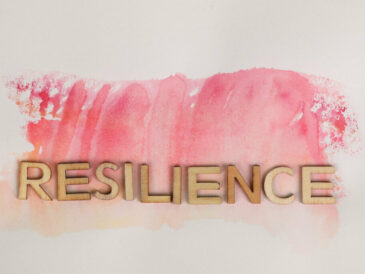Some individuals don’t get the chance to grow up with a father figure. Having a loving, stable, and supportive household to grow up in is an incredible privilege. Adults who struggle to form secure attachments with others may suffer from daddy problems. One possible cause is a troubled or absent parental figure in early life.
Having problems with one’s father is not a severe psychiatric disorder. However, this term is sometimes used as a slur against women, especially by males who are seen as acting too much like the women’s fathers. There is a widespread misreading and abuse of the word. There is no reason to mock those who may struggle with attachment to their fathers by calling them “daddy’s girl” or something similar.
Where Did “Daddy Issues” Come From?
No one knows for sure when or where the phrase “daddy issues” first appeared. But Freud’s father complex laid the groundwork for the idea. Because of their troubled upbringing, people with complex fathers act on urges they don’t even realise they have. These urges can be beneficial or harmful. Fear and mistrust of a partner would be examples of negative impulses, while admiration for a partner would be an example of a positive one.
When a daughter has a difficult connection with her father, she often finds comfort in unhealthy relationships with other men. Women who have a father complex have a distorted mental image of their father that they use to try to mend their strained bond with him.
At the tail end of the 19th century, Freud came up with a similar theory he dubbed the “Oedipus complex.” The renowned psychoanalyst proposes in this theory that children have an unconscious preference for the parent of the opposite sex.
How to Tell If You Have a Father Complex
Here are some red flags that suggest you may have some serious father complexes:
You Have a Craving for Retired Older Men
If your father was absent or unsupportive as a child, you may have developed a deep-seated longing for the ideal parent figure. You hope they’ll make up for the unrequited love you never received as a child and look for older guys because of their greater security and stability.
You Are Possessive, Clingy, and Overly Protective
People who worry their partners will abandon them often become overly possessive and jealous. The way you connected with your parents as a kid has contributed to your development of an anxious attachment style. Your temper is easily triggered. You are constantly checking your partner’s phone to catch them in the act of infidelity. Worrying increases if they are chronically tardy in returning home. This worrying behaviour may cause tension in the partnership and lead to rejection.
You Always Need Confirmation of Love
If you’re the type of person who naturally has low self-confidence, your companion will likely feel like a constant source of reassurance. You frequently evaluate yourself against the ex-partners of your current companion. As before, this can be very confining for your partner. You will feel unwanted, unloved, and insignificant on top of the abandonment.
You Have a History of Attracting Partners Who Are Abusive
There’s a part of you that wants to reconcile with your distant father. This is why you find yourself in relationships with people who are cruel and self-centered. Why? Because their behaviour makes you think of your father, whom you adored and desperately tried to win over when you were a kid.
You Have a Serious Sexual Appetite
You consider sexual activity to be your only hope for maintaining your relationship. Sexual activity with them daily can do wonders for your sense of self-worth.
The desire to experience affection through sexual activity is like applying a band-aid to a wound. Sexual activity heals your broken heart. You are aware of the fact that you have attachment problems, but you choose to ignore them so that you can feel better about yourself. If this is the affection you’re experiencing right now, it can only end in pain.
You Hate Being Alone
You never get to experience single hood and you never seem to settle down in a relationship, instead constantly bouncing between different ones. You could care less if you wind up with a good person or an abusive one. If this is the kind of affection you’re looking for, you’ll never figure out who you are. If you can’t get over the things that make you lonely, you’ll never be able to have a happy and fulfilling partnership.
Symptoms of a Daughter With Daddy Complex
The question “Do I have daddy issues?” might not provide a definitive response. If you’re being truthful about your connection with your dad, you can get a clearer picture of whether or not you suffer from daddy issues. Honestly respond to the following questions:
- Were you an only child?
- Have you experienced an abusive parent?
- Do you have a dysfunctional or emotionally distant parent figure?
- If you answered “yes” to any of these inquiries, you may be experiencing attachment problems.
Different Dads

Many fathers, but not all, are to blame for the emotional and relational difficulties their girls face as adults.
The Emotionally Distant Father
They are there for their girls physically, but they have no emotional connection with them. Though a parent is present, the kid cannot shake the feeling that he or she is alone and unloved.
There’s the Violent and Abusive Father
Because of their own emotional and mental instability, they are cruel to their girls. The children of this type of parent often develop emotional and behavioural issues.
A Father Who Spoils His Kids
Fathers like that raise children who are pampered to excess. Their father dotes on them and loves them very much. The daughter would expect to be handled like she was when she was a child. She wants a man who will respect her and treat her like a princess. The majority of women of childbearing age marry older men who can provide the opulent lifestyle their girlfriends believe they merit.
The Abusive and Micromanaging Father
Helicopter parents: familiar term? Helicopter parents are those who micromanage their children’s every move. These parents are hovering over their kids too much and protecting them from life’s inevitable setbacks. Girls raised by hovering dads tend to look for men who can take the reins in a relationship.
The Dependent Father
In other words, these dads can’t make it without their girls. Child cares for a stay-at-home dad has been linked to poor self-esteem. They are raised to be vulnerable to sexual and economic exploitation at the hands of males.
The Distressed and Grieving Father
Daughters typically have a great deal of respect for their dads. If a parent consistently lets down his daughter, she is more likely to develop problems with her father as an adult. The girl will develop into a rebellious, destructive young adult. She may be thinking about ending her own life. A female child of an emotionally unstable parent may be more likely to experiment with substances and sexually explicit behaviours.
Cases of Daddy Complexes
People who struggle with daddy problems often display insecure attachment behaviours towards their parents. When carers are unresponsive to a child’s needs, the kid develops an insecure attachment. The following are examples of insecure attachment:
Anxious and Distracted
People with this trait are overly possessive and nervous. They can’t get comfortable because they keep worrying that their companion will abandon them.
Dismissive and Evasive
These people have trouble trusting others. They worry that the people they care about most will harm them.
Afraid and Withdrawing
These people worry and dread getting close to others. They keep their distance from others. They would rather avoid trouble by disappearing when it arises.
A lack of a father figure is not unique to children. It’s more common than people think to have problems with one’s father. This is because many adults still carry negative feelings towards their parents from their youth.
Finding a Partner When You Have Daddy Complexes
When you were a kid, you fantasised about who would become your lifelong partner. Sometimes you just want someone who reminds you of your folks. You are still likely to form familiar relationships regardless of whether you came from a happy or troubled household.
Whether or not it was traumatic, the type of connection you had as a child serves as your emotional reference point. If your parents had a close, loving relationship, you’re more likely to seek a companion who can provide you with the same.
Sexuality and Problems with Dad
It’s not uncommon for fathers to be emotionally distant, abusive, or simply missing. Lack of parental involvement is linked to negative outcomes for children. Their sexual appetite may grow because of their erratic development. Those males who did not grow up with a parent figure will struggle with questions of self-worth and identity. Because of their low self-esteem, they may choose to forego romantic relationships. They may become violent or, even worse, sexual offenders.
How Can This Be Fixed?
It’s time to reflect on the many connections you’ve made. Do you find that you’re generally content, or do you frequently find yourself in toxic relationships? Consider the other married people you know. How do their bonds vary from yours? Seek the guidance of close peers who are currently in happy, fulfilling relationships.
Couples therapy is an option if your partner is ready to assist you in dealing with your father’s issues. The focus of therapy is on getting to the bottom of things so that workable answers can be found. Improve your relationship life now while you still can. It will be difficult to accomplish this on your own. To help you move forward and forget the past, you should consult an expert.
Concluding Remarks
Those who suffer from paternal complexes often fail to love themselves or love themselves incorrectly. This will have an impact on their personal, romantic, social, and work relationships. Love should be mutual and reciprocal. You love this individual unconditionally, and this love is returned. Learning to respect yourself and working towards personal goals increases the likelihood of you finding and maintaining healthy, loving relationships.





